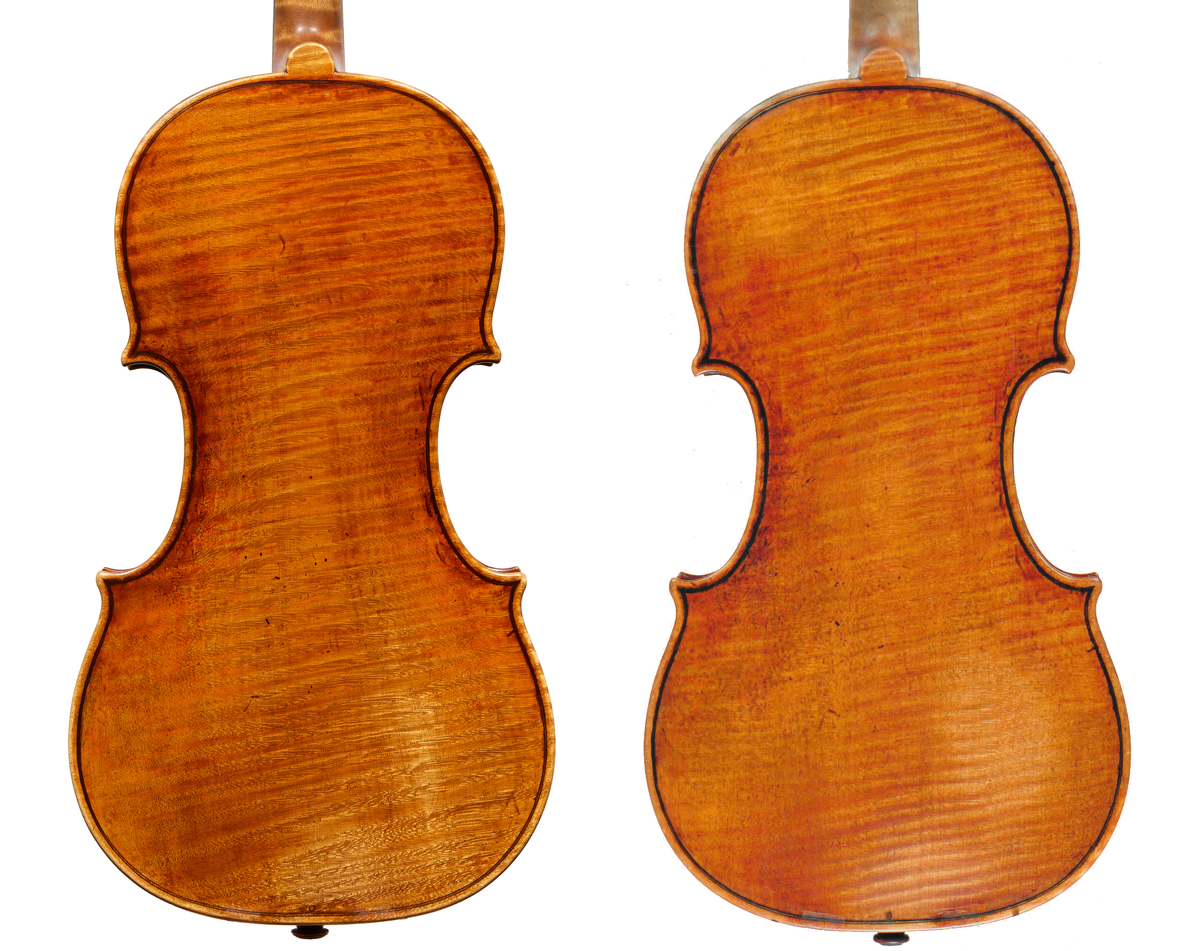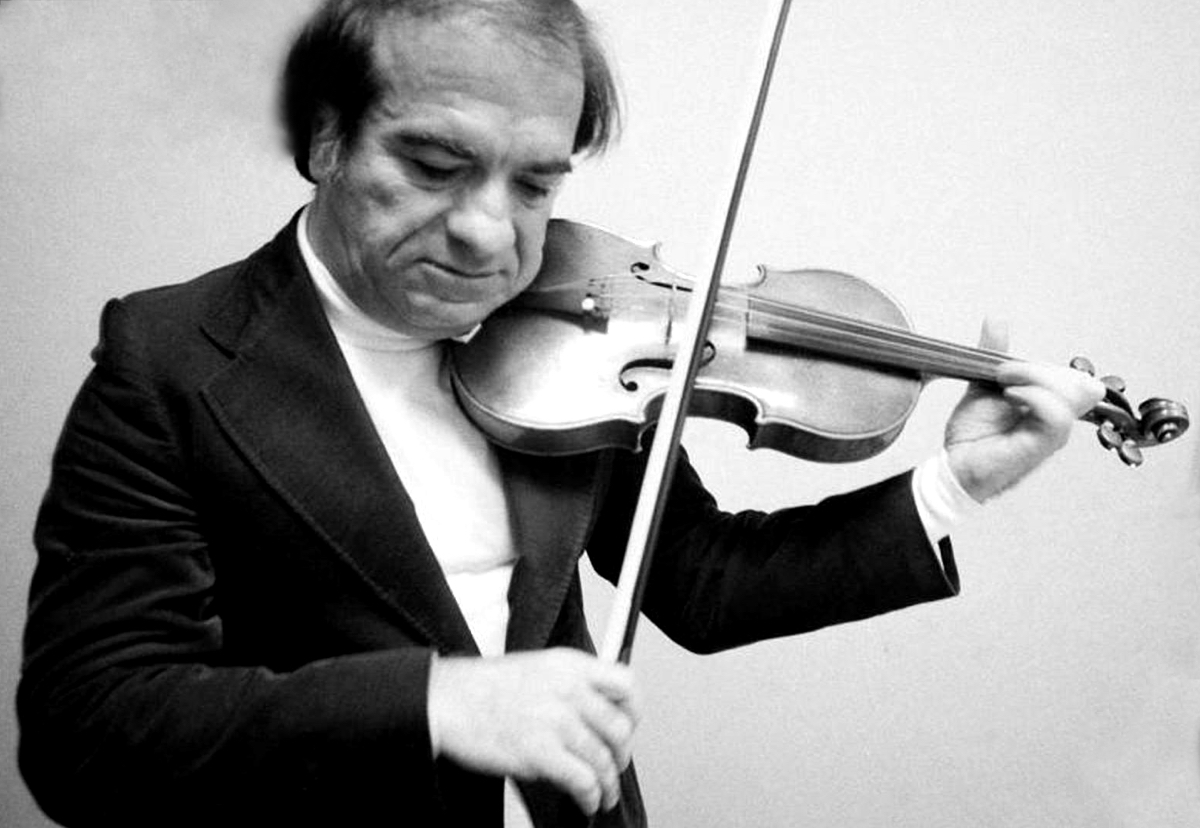Joseph Curtin and I first met Ruggiero Ricci in 1984, when we were touring the US in search of a suitable location for our studio. On the trip we visited Ann Arbor and stayed at the University of Michigan. Ruggiero was on the faculty there and we were thrilled to meet him and of course to study his 1734 Guarneri ‘del Gesù’, the ‘Gibson, Huberman’. He generously let us measure it and make photographs, and spent hours discussing with us the fine points of what a concert artist needs in their instrument. And in the end, Joseph and I chose Ann Arbor as the place to open our new violin making studio, Curtin & Alf.
Ruggiero enjoyed all things related to violin making and under different circumstances, I can even imagine him making a violin. He would sometimes make soundpost or bridge adjustments for his Guarneri and then visit Curtin & Alf to set things straight. In the end we made two bridges for the ‘Huberman’, one for him to experiment with and one, ‘no touching’, for concert use. In the process I got to know the ‘Huberman’ quite well.

The Curtin & Alf copy (left) beside the original ‘Huberman’ Guarneri (right)
Ruggiero’s desire to have us make a replica was a natural development of our time together. He really loved the ‘Huberman’. Tonally, it had a great G string, something that not all Guarneri violins possess. Ruggiero had a clear vision of his sound and the technique to produce it on almost any instrument. The question was just how hard he would have to work at it. All artists want an instrument that allows them to produce their sound effortlessly. The ‘Huberman’ provided that for Ruggiero but, like any artist, he was always striving for more.
‘Ruggiero had a clear vision of his sound and the technique to produce it on almost any instrument’
When Ruggiero asked us to replicate the ‘Huberman’, Joseph and I set out to really document the instrument. We made full plaster castings of the top, back and scroll, so we could reproduce the 3-dimensional shapes. That is easy today with CAT scanning, but at the time it was really a breakthrough for us. Our goal was not just to produce a visually faithful copy, but one that would vibrate in the same manner, so we weighed the top plate and calculated the free-plate modal patterns and frequencies. We also used sonar equipment to measure and match the speed of sound in the wood we selected.

Virtuoso Ruggiero Ricci. ‘Ruggiero’s desire to have us make a replica was a natural development of our time together,’ says Gregg Alf
On a superficial level, copying a Guarneri is easier than copying a Strad. Like the caricatures that art students draw for tourists, one just exaggerates the main features. But the ‘Huberman’ is a subtle violin. The outline is pure Guarneri ‘del Gesù’ and the scroll is a beautiful example of his father, ‘filius Andreae’, but in many ways it is as if Guarneri himself was inspired by Stradivari. Such subtleties can’t be measured. I can make an f-hole template from the plaster cast of the original top, but it’s hard to capture the sense that Guarneri was looking to Stradivari when he was cutting the f-holes. On top of this, we are limited by our own artistic preconceptions. In this case it was wonderful working with Joseph. Together we could erase each other’s biases and remain true to what was really before us. That was a tremendous learning experience, especially when it came to recreating antiqued varnish.
Ruggiero was immediately smitten by the violin. It was a true replica of his long-held friend. Even the playing experience was similar and it was natural for him to begin concertizing on the copy, often leaving the original at home. Watching our replica develop in Ruggiero’s hands over the years helped me to realize just how much a violin is changed by the player. It is surely one of the key instruments in my career as a violin maker.
Tarisio sold the ex-Ricci Curtin & Alf violin in 2013. View more images of the violin.